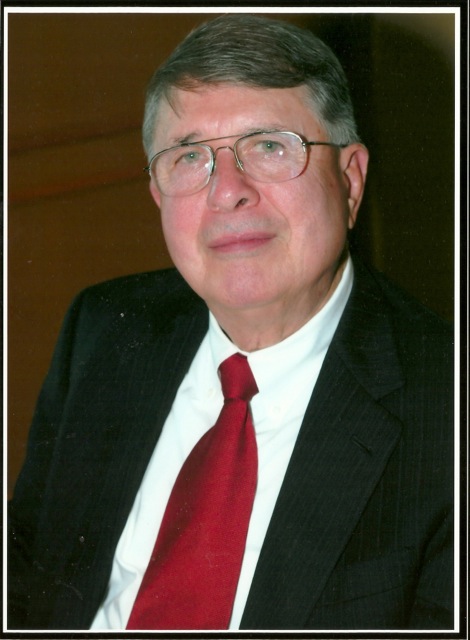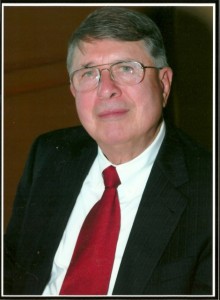Why the Confession of Belhar? – Jerry Tankersley
Editor’s Note: I am grateful to serve on the General Assembly Special Committee on the Confession of Belhar. The Committee was charged with discerning whether to recommend inclusion of the Confession in our Book of Confessions, and to develop resources to educate the church. This week, I am honored that five members of the Special Committee offer their reflections on the Confession. We look forward to the part readers will take in this important conversation.
The congregations of the Presbyterian Church (USA) are blessed to have a Book of Confessions as the first part of our Constitution. The Book represents a rich spiritual tradition that has nurtured and inspired many people. The eleven Creeds, Confessions, Declaration, and Catechisms represented the vision of Reformed believers witnessing to their faith in various times and places as the church struggled to be faithful to God’s grace in Jesus Christ as revealed in the Scriptures.
The eleven documents affirmed the great Protestant watchwords, “grace alone, faith alone, Scripture alone”. None of the eleven said everything that might have been said about the grace and truth of God at work to rescue a fallen world from its bondage to the powers of sin and death. But when read together in dialogue with the Scriptures of the Old and New Testaments, in dependence upon the illumination of the Holy Spirit, the church has been Reformed and always in the process of being Reformed.
The Confession of Belhar from the black Reformed Church of South Africa deserves to be included in our Book of Confessions. We need to have the Confession of Belhar in our confessional tradition. It was written by one part of the South African Reformed family for the sake of reforming the larger South African church. It emerged in a time of the evil of apartheid in which the churches of South Africa were divided along racial lines. That division was justified by an interpretation of the Bible as allowing racial separation and segregation, even at the Lord’s Table. The larger Reformed Christian world saw that theology and practice as heretical and in violation of the grace and truth of God’s character and intent. The church’s stance on race was used to validate the racial divisions of the nation. There was no prophetic word calling the nation to reconciliation, unity, and justice. The Confession of Belhar called church and culture to repentance.
The Christian churches of the United States have lived and witnessed in the context of a history of racism that has uniquely formed our church, our national life, and culture. I believe that no person or citizen of our country has escaped the spiritual, cultural, political, and economic consequences of the scarring caused by the enslavement of Africans. Africans were captured against their wills, sold and bought as chattel, separated from native lands and families, and defined as partial citizens under the U.S. Constitution. With the loss of compromise between north and south in the mid-1800’s, the Presbyterian Church divided with the outbreak of the Civil War. We fought a war in which 750 thousand of our fellow citizens died. The War ended, but the problems of racial hatred, segregation, discrimination, and the efforts to deny civil rights to the strangers among us continue to this day.
The PC(USA) is still racially divided. Both church and nation are in denial and in great need of pursuing Martin Luther King Jr.s’ biblically inspired vision of a just and racially harmonious society. The Book of Confessions has only one major paragraph in the Confession of 1967 (9.44) that addresses this issue that has haunted and troubled our church and nation.
In lifting up the Confession of Belhar, by adding it to our Book of Confessions, we will be affirming the purpose and plan of God from before the foundation of the world. And that was “to unite” or “gather” up all things in Jesus Christ. (Ephesians 1). In the history of Israel and in the life, death and resurrection of Jesus Christ, God acted to make peace, to reconcile humanity to God’s self and us to one another. This, God accomplished by breaking down dividing walls of hostility and reconciling “Jew and Gentile, slave and free, male and female, black and white, rich and poor”. In the blood of Christ God made peace and incorporated us into a new humanity called to live as the Church of Jesus Christ, to the glory of God, for the healing of creation and history. (Ephesians 2-4)
This new humanity was called to become a spiritual temple in the Lord in which every disciple was to be included for the sake of participating in the church’s mission of “doing justice, loving kindness, and of walking humbly with God.” To the church in Corinth Paul wrote, “All this is from God, who reconciled us to himself through Christ, and has given us the ministry of reconciliation. So we are ambassadors for Christ.” 2 Corinthians 5:16-21
 The central words of the Confession of Belhar, “unity, reconciliation, and justice” are at the heart of the Bible’s Gospel. The PC (USA) needs to be claimed by these words and by the hope they promise. The Confession of Belhar speaks to us, convicts us, calls us, empowers us, reconciles us, unites us, and stirs new beginnings. The renewal of the church will depend on our being reformed anew by biblical truth and the Holy Spirit. We live in a time in which our church and nation are deeply divided into threatening camps. We are fragmented. The message of God’s eternal plan to stoop to the poor, the lowly, the powerless, and the oppressed for the sake of healing human brokenness, of calling us together, and leading us to participate in God’s work is good news indeed.
The central words of the Confession of Belhar, “unity, reconciliation, and justice” are at the heart of the Bible’s Gospel. The PC (USA) needs to be claimed by these words and by the hope they promise. The Confession of Belhar speaks to us, convicts us, calls us, empowers us, reconciles us, unites us, and stirs new beginnings. The renewal of the church will depend on our being reformed anew by biblical truth and the Holy Spirit. We live in a time in which our church and nation are deeply divided into threatening camps. We are fragmented. The message of God’s eternal plan to stoop to the poor, the lowly, the powerless, and the oppressed for the sake of healing human brokenness, of calling us together, and leading us to participate in God’s work is good news indeed.
The Accompanying Letter to the Confession of Belhar says,
“We make this confession not as a contribution to a theological debate nor as a new summary of our beliefs, but as a cry from the heart, as something we are obliged to do for the sake of the gospel in view of the times in which we stand.”
It is in this spirit that I want to add the cry of my heart. I grew up in northwest Texas in the last days of “separate but equal” law. During the first 20 years of my life blacks lived on the other side of town, had so called “separate but equal” schools, went to the back of the bus, were not allowed to sit at the soda fountain, had colored waiting rooms and drinking fountains and faced bleak economic futures. The African American family suffered the consequences. We were racists. I was a racist, even though rationally I knew better. The Civil Rights movement of the 1960’s under the leadership of M.L. King, Jr. troubled and inspired me. His Letter From A Birmingham Jail convicted and melted my heart.
When I was in graduate school in California, after seminary, while working on a Ph.D. in Government, I came out of a seminar one evening with a fellow student who happened to be black. We were talking in the parking lot and became aware that we were about the same age. He grew up in a black farming community near my hometown. We might as well have been raised in separate countries. He shared with me that his dad had been a Southern Baptist black preacher. His father lived in a world in which he had no justice. He and his family were not considered equal to mine. He said that his dad preached against Jews almost every Sunday. The racism that his dad experienced he simply passed on to another racial group. As he told me the story he began to weep. I wanted to cry. We had been so near, yet so far from one another. The system that oppressed him was also oppressing me, wounding me, scarring my heart, and was, by in large, being neglected by the white established church. No, consciously or unconsciously, aided and abetted!
For the most part I suspect that white Christian America has accepted a gospel with a hole in it. We have heard the good news and tended to opt for the salvation of our souls not realizing that the mission of God will not be complete before our souls and our societies are made right by God’s grace. Between the “already and the not yet” of the New Creation I want our church to be a lighthouse of the gospel and to walk into the fullness of our confession that “Jesus is Lord”.
Let’s listen to the Confession of Belhar, take it seriously, pray over it, teach and preach it, and add it to our Book of Confessions. It’s time to add our collective cry from the depths of the heart of our church!
Dr. Jerry Tankersley has been pastor at Laguna Presbyterian Church in Laguna Beach, California, since 1972. He has advanced degrees from Fuller Seminary, Princeton Seminary, and Claremont Graduate School. Jerry was a candidate for Moderator of the General Assembly of the PCUSA in 2002 and has since served on the GANC and as co-chair of the National Presbyterian Pastor’s Sabbath. He was a member of the previous Committee that recommended the Confession of Belhar be added to our Book of Confessions, and he serves as well on the current Special Committee.



Frankly, the more confessions we add to the book the less people in the pews pay attention to what they say. This is especially true if the subjects of newly added ones have already been covered in previous confessions, as is the case with Belhar.